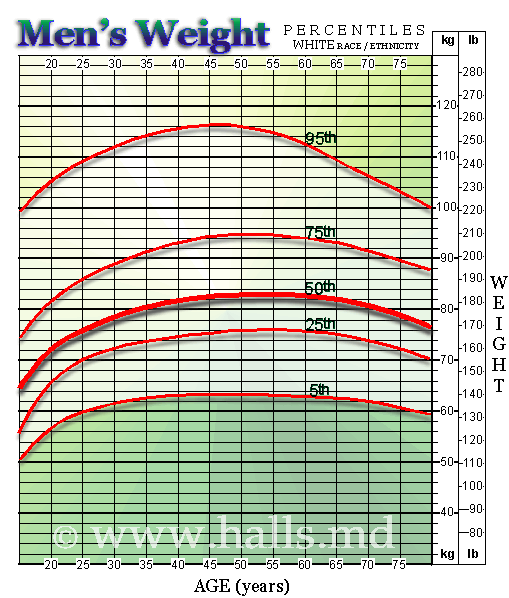Reading the tort reform blog Pointoflaw.com, I came across a link captioned: “‘Ford failed to warn seating unsafe for obese persons’ suit fails.” Sounds pretty frivolous, right?
I followed the link to Abnormal Use, a corporate defense blog, which has the virtue of being intellectually honest, unlike Pointoflaw. There I got the whole story.
It wasn’t just some overweight person who was suing Ford for failure to warn a chair might collapse under her weight.
The plaintiff in the case was a 300 pound woman driving a Ford Explorer that was rear-ended by another SUV at the (relatively low) speed of 30 mph. The impact of the accident caused her seat to collapse backwards. The accident also left her a paraplegic.
Ford hadn’t tested or designed the seats for anyone above 220 pounds. Now here’s a little graph that I just found through a simple google search that shows about 5-10 percent of men are in the 220 pound range. Yet Ford didn’t bother testing above 220 pounds.

And this poor woman wound up a paraplegic in a 30 mph accident. Sound frivolous now?
Yet, according to the blog post, the trial court entered a directed verdict against her on her failure-to-warn claim and didn’t even let that claim get to the jury.
I assumed that this woman’s failure-to-warn claim was not her only claim and that she also brought breach of warranty claims against Ford. I was hoping that she managed to prevail on one of those other claims. I went to the (unreported) decision on Westlaw. It appears the other claim did make it to jury and that the jury found against her.
I have a great respect for juries and jury verdicts so I’ll leave alone the fact that the jury found against her on a strict liability standard that should’ve been unfavorable to Ford.
But the online reporting about this case illustrates how the media stir up worries about frivolous lawsuits.
This wasn’t an overweight person who sued Ford because the seat collapsed under her weight and she fell on her butt. This was a woman who was rendered a paraplegic, in part, because Ford didn’t test its seats above a weight range within which some ten percent of the adult male population falls. And she wasn’t suing Ford for failing to include a warning label on the chair saying, “If you’re too heavy, this seat may cause injuries.” Her failure-to-warn claim was just one of the legal theories she pursued (her claim for breach of the warranty of merchantability was much stronger).
From a societal perspective, cases like these should really boil down to: Who should bear the cost? As a paraplegic, this woman will require millions of dollars in medical care for the rest of her life. Who should bear the cost of that? We, the taxpayers, or Ford, a company that profits from a car seat that it never bothered to test at 30 mph with a dummy weighing more than 220 pounds? If Ford has to bear the cost do you think that maybe next time they might design a better seat?
Boston Personal Injury Lawyer Blog
The Law Office of Alan H. Crede
